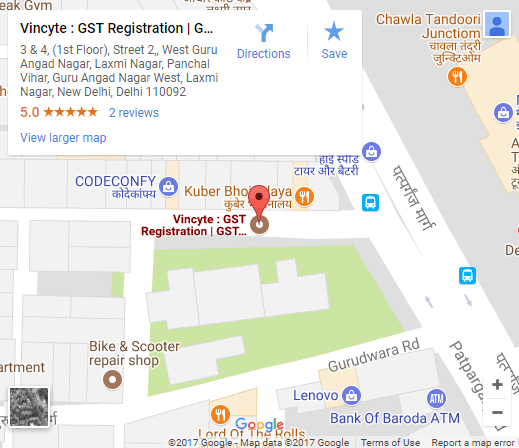As per the Companies Act 2013 (in India), the appointment of a director in a private limited company is governed by the following rules and procedures:
Eligibilty: To be eligible for the position of director in a private limited company, a person must have a Director Identification Number (DIN) issued by the Ministry of Corporate Affairs (MCA). They should not have been disqualified from being appointed as a director under the Companies Act or any other law.
Obtaining DIN: If the person does not have a DIN, they need to apply for one through the MCA portal (www.mca.gov.in) by filling the DIR-3 form.
Consent and Declaration: Before appointment, the proposed director must provide his/her consent to act as a director of the company. They must also furnish a declaration that they are not disqualified to become a director under the Companies Act.
Appointment: The appointment of a director can be done in the following ways:
- Appointment by Shareholders: Shareholders of the company can appoint a director at the Annual General Meeting (AGM) or an Extraordinary General Meeting (EGM) by passing an ordinary resolution (unless the Articles of Association require a special resolution).
- Appointment by the Board: The Board of Directors can appoint additional directors between AGMs or EGMs to fill casual vacancies or to meet the requirements of the board. Such an appointment will be subject to ratification by shareholders at the next general meeting.
Intimation and Filing: Once the director is appointed, the company must inform the MCA about the appointment within 30 days using the DIR-12 form.
The procedure for the appointment:
Check Eligibilty: Ensure that the person proposed to be appointed as a director meets all the eligibility criteria, including having a valid Director Identification Number (DIN) and not being disqualified under the Companies Act or any other law.
Board Resolution: The first step is to convene a meeting of the existing board of directors to pass a board resolution proposing the appointment of the new director. The resolution should include details such as the name of the proposed director, their DIN, consent to act as a director, and other relevant particulars.
Intimation and Consent: Obtain the consent of the proposed director in writing to act as a director of the company. The individual must also provide a declaration that they are not disqualified from becoming a director.
Hold General Meeting: Once the board resolution is passed, convene an Extraordinary General Meeting (EGM) or Annual General Meeting (AGM) to get the approval of the shareholders for the appointment of the director. Notice of the meeting, along with the agenda and relevant documents, must be sent to all shareholders as per the Companies Act.
Shareholder Approval: During the EGM or AGM, the shareholders will pass an ordinary resolution to approve the appointment of the new director. The resolution should be filed with the Registrar of Companies (RoC) within 30 days using the MGT-14 form.
File DIR-12: Within 30 days of passing the board resolution, the company needs to file the Form DIR-12 with the RoC, which contains details of the new director’s appointment. The form should be submitted through the MCA portal.
Update Register of Directors: After the appointment is approved, update the register of directors and key managerial personnel as per Section 170 of the Companies Act.
File DIR-2: The newly appointed director needs to submit a Form DIR-2 to the company, providing his/her consent to act as the director and confirming that he/she is not disqualified.
Other Complianes: Ensure that all other relevant compliances are met, such as updating the company’s books and registers, updating the website (if applicable), and making necessary filings with other regulatory authorities.
Frequently Asked Questions
What is the minimum age requirement for a person to be appointed as a director in a private limited company?
The person must be at least 18 years old to be eligible for appointment as a director in a private limited company.
Can a foreign national be appointed as a director in an Indian private limited company?
Yes, a foreign national can be appointed as a director in an Indian private limited company. However, they must obtain a Director Identification Number (DIN) from the Ministry of Corporate Affairs (MCA) before the appointment.
What is the process for obtaining a Director Identification Number (DIN)?
The process for obtaining a DIN involves filing Form DIR-3 on the MCA portal along with the necessary documents, such as identity proof and address proof.
Is it mandatory to hold a board meeting for the appointment of a director in a private limited company?
Yes, a board meeting is necessary to pass a board resolution proposing the appointment of the new director. The resolution should be supported by the consent and declaration of the proposed director.
Can a director be appointed without the approval of shareholders?
In most cases, a director needs to be appointed with the approval of shareholders. The shareholders’ approval is obtained through an Ordinary Resolution at a General Meeting (EGM or AGM).
What is the maximum term of appointment for a director in a private limited company?
By default, the term of appointment for a director in a private limited company is up to five years. However, the Articles of Association or shareholders may fix a shorter term.
Can a person be appointed as a director in multiple companies?
Yes, a person can be appointed as a director in multiple companies, subject to the limit of 20 directorships (including public companies) as per the Companies Act 2013.
Can a person be removed from the position of director before the expiry of the term?
Yes, a director can be removed before the expiry of their term by passing a resolution in a General Meeting, subject to compliance with the provisions of the Companies Act.
What are the penalties for non-compliance with the appointment procedure of a director?
Non-compliance with the appointment procedure can lead to penalties for the company and its officers, including fines and additional compliance requirements.
Can the appointment of a director be revoked by the Registrar of Companies (RoC)?
Yes, the RoC can remove a director from the company if there are valid grounds, such as non-compliance, disqualification, or fraudulent activities.
Get In Touch

Contact Us
New Business


